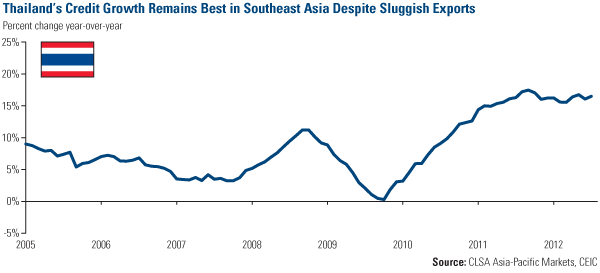Emerging Markets Radar (October 1, 2012)
Strengths
- China’s official Xinhua News Agency released two very important announcements today. First, the Communist Party of China will hold its 18th congress on November 8, 2012. Second, China charged former Chongqing boss and leadership challenger, Mr. Bo Xilai, for crimes including corruptions and his responsibilities in the murder of a British national, Neil Heywood. This should put to rest speculation over the leadership transition and other political issues, therefore removing a political risk premium from the equity market in China and Hong Kong.
- The A-shares market rebounded for the last two days of the week after the Shanghai Composite Index reached a three-year low at the 2004 psychological level. The market saw domestic fund companies and government pension plans buy into cheapness.
- Philippine’s government reported a surprise budget surplus for August 2012, though through slower spending growth.
- Indonesia’s central bank still expects GDP growth at 6.4 percent for 2012, and to improve its current account deficit in 2013.
- The Czech central bank cut interest rates by 25 basis points this week in an effort to boost economic growth.
Weaknesses
- Singapore’s August industrial production contracted 2.2 percent, below consensus. The contraction was led by transportation engineering (down 20 percent) and electronics (down 7.3 percent).
- Thailand announced August export was down 6.9 percent, versus consensus down 5.8 percent. Exports to all key market contracted, led by Europe (down 23 percent), ASEAN 5 (down16.8 percent), Japan (down 12 percent), and China (down 8.6 percent).
- Guangzhou city in Guangdong province limited pre-sales for some home projects that have “excessive high prices.”
Opportunities
- Driven by domestic construction and consumption, Thailand bank loans are growing more than 15 percent year-over-year.

Threats
- The tension between Japan and China caused Japanese vehicle sales to slow in China and cancellations of Chinese tourist bookings to Japan. In the event of a military conflict between the two countries, global trades and economic recovery will be affected.
- The Brazilian central bank raised its inflation forecast for 2012 to 5.2 percent from 4.7 percent, citing recent fiscal stimulus. Stimulative monetary policy action now appears unlikely.











